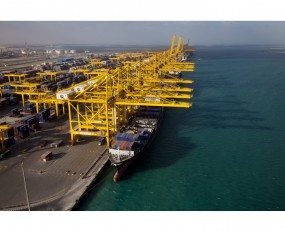
As container shipping companies seek to diversify beyond marine logistics, container terminal operators are looking to expand both their landside and ocean logistics capabilities.
The latest is DP World which has just spent US$1,079m on Topaz Energy and Marine Limited, an oil field services company. Largely focussed on the operation of offshore support vessel, including large anchor handling vessels, Topaz has a fleet of 117 ships particularly in the Caspian Sea but also the Persian Gulf, the Mediterranean, Africa and the North Sea.
Sultan Ahmed Bin Sulayem, CEO of DP World, in explaining the reasoning behind purchase said that his company had “been investing selectively in the marine logistics sector in companies with high revenue visibility, consistent track record and strong customer relationships. This latest acquisition complements the operations of our P&O Maritime Services (POMS) business, which maintains over 300 vessels globally.”
It is notable that this is the reverse of the strategy that AP Moller-Maersk has pursued, with the Danish company at one time attempting to sell its oil field ‘supply service’ but failing to find a buyer willing to pay a good price.
The oil offshore field supply business is often highly cyclical, with the weakness in the oil price several years ago leading to aggressive rationalisation of assets, particularly in more mature offshore fields such as the North Sea. The principal markets for such services are now perceived to be in a triangle between West Africa, the Gulf of Mexico and the coast of Brazil.
Topaz is slightly unusual in that it is heavily exposed to the Caspian, a region that still has modestly growing output and where the competition for oil field services is not quite as fierce as some other locations. Yet the purchase is still a courageous move by DP World. It may say something about the perceived future returns within the container terminal business that a terminal operator is willing to make such a sizeable investment in non-container logistics, and indeed in a sector driven by the price of hydro-carbons.
Source: Transport Intelligence, July 2, 2019
Author: Thomas Cullen